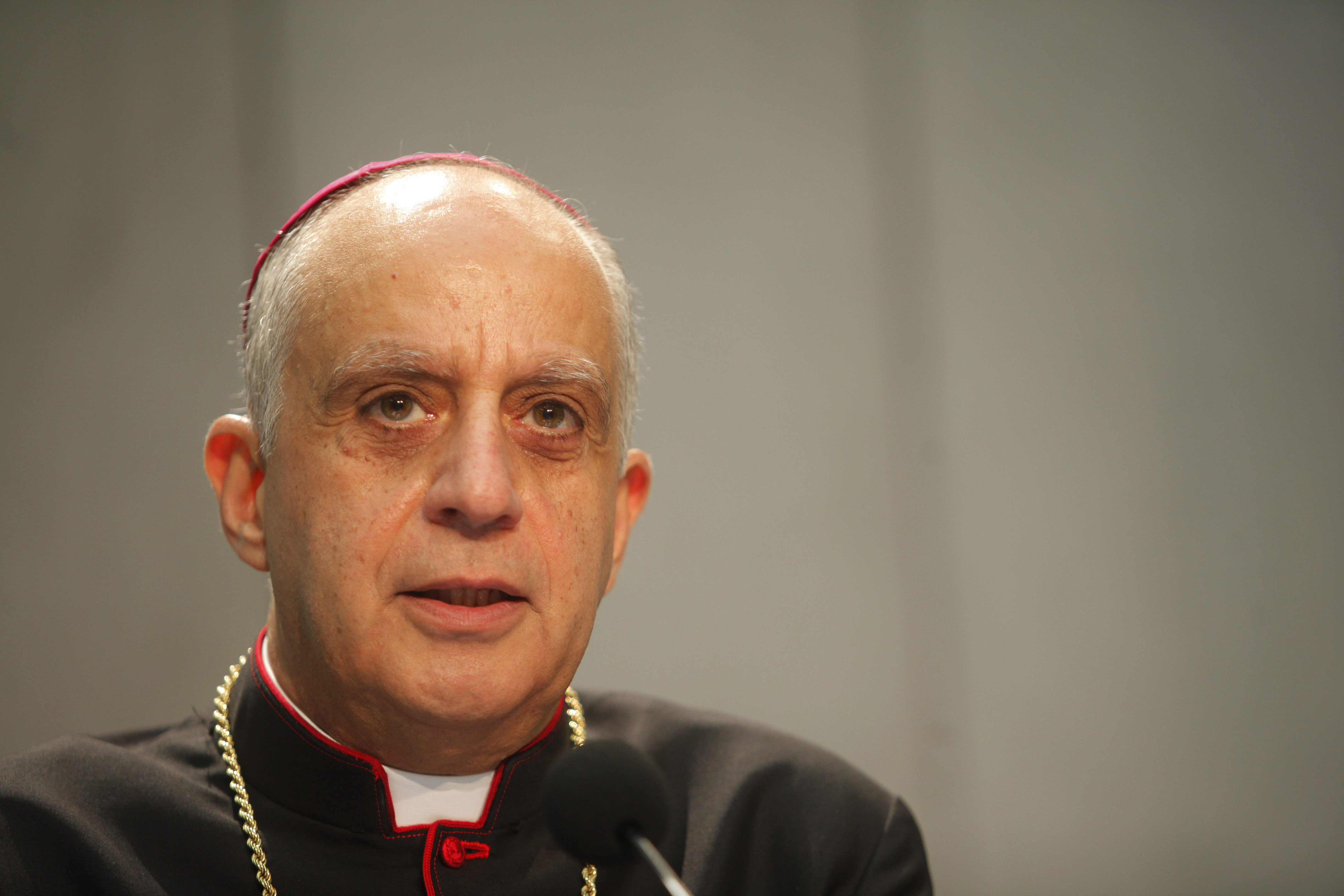Interview
Monsignor Rino Fisichella, President of the Pontifical Council for Promoting the New Evangelization, illustrated to SIR the “post-Jubilee” developments. From the service of one thousand missionaries of mercy worldwide – to be enhanced within dioceses – to the preparation of events such as the World Day of the Poor and the Synod on Young People. “The Jubilee continues not only in the form of proclamation but as a way of life under the banner of mercy”, assured the prelate who didn’t exclude the possibility of an “extension” by the Pope also with regard to the “Fridays of Mercy.” Perhaps starting in the upcoming Lenten period.

The Jubilee ends, the Jubilee continues, Monsignor Rino Fisichella, President of the Pontifical Council for Promoting the New Evangelization told SIR illustrating the Pope’s “extension” of the service carried out worldwide by one thousand missionaries of mercy along with the role of his Dicastery in the preparation of events such as the Synod on Young People and other upcoming events, such as the World Day of the Poor. Will Francis also “extend” the “Fridays of Mercy”, perhaps during the imminent Lenten period? “Who knows… as usual, the Pope will surprise us”, he replied.
In Misericordia et Misera, the Pope writes that the Jubilee cannot become a mere parenthesis in the life of the Church as the former constitutes her very existence. How is it proceeding in local Churches worldwide?
I think it continues with that same enthusiasm that never waned and that characterised the entire Jubilee Year. This Jubilee has touched our people deeply, to unexpected degrees: it means that Pope Francis’ original intuition was timely, as it voiced its existence present in everyone’s hearts.
The Jubilee continues not only as proclamation, it continues as life under the banner of mercy.
The Pope has given concrete directions to live it in full. We are approaching the beginning of the initiative ’24 hours for the Lord’ marked by increasing participation worldwide: on the Day the doors of churches remain open 24 hours thereby offering people the possibility of receiving the Sacrament of mercy, namely the reconciliation with God.
There is also the service of the missionaries of mercy, which by will of the Pope was extended beyond the Jubilee calendar…
The Pope furthered the continuation of mercy present at the heart of the Church in two ways. Firstly, he extended to all world priests the faculty to absolve the sin of abortion, in a permanent manner. It’s a sign whereby Francis wishes to welcome all the faithful, making them understand that the Lord’s forgiveness, once the heart has repented and yearns for reconciliation, knows no borders, obstacles or limits.
It’s the first sign that we should always bear in mind: there is no obstacle to receiving forgiveness for persons who repent.
Secondly, the Pope sent out one thousand missionaries of mercy, to whom he asked if they would continue their ministry even beyond the Jubilee year. Nearly everyone accepted, and they all thanked Francis for this opportunity. Now they continue carrying out their service with enthusiasm.
How are they received in the dioceses?
It is hoped that the bishops are aware of this great opportunity they are being offered: first of all the missionaries are called to kindle Jesus’ message with their preaching, but their mission, addressed to all – priests and lay faithful alike – is also a concrete sign, a tool whereby mercy becomes present when the heart nurtures a longing for reconciliation.
The Dioceses regularly promote spiritual retreats and meetings for priests, spiritual exercises for priests and lay faithful, occasions of preparation for the various sacraments, such as courses for parents of children preparing for the First Communion and Confirmation, or formation encounters for married couples. It’s a multifarious world of initiatives where the presence of the missionaries of mercy can give a valuable contribution.
After the Jubilee, the Synod on youths: what will be the role of your Dicastery in the preparations for this event?
At global level the New Evangelization is primarily experienced by the young members of various movements and by the new forms of religious life, which include consecrated life. Thousands of young people have chosen evangelization as the vocation of their Christian life: here we find a great treasure within the realm of youths, rich with deep motivation, enthusiasm and hope.
Before identifying the youths as the recipients it is necessary to acknowledge the positive activity carried out by our young people in the realm of Evangelization.
We see it day after day: young people travel across the world with a view to evangelization, not to mention the high number of youths engaged in catechesis activity in parishes, for example in the Confirmation courses for children.
Moreover , there is a flock of evangelizing and catechist youths, which the entire ecclesial community is called to address without preconceived formulas: it is necessary to learn new languages in order to understand their behaviour.
The Curia’s reform process advanced by Francis is continuing. In which way will it involve also the Pontifical Council for Promoting the New Evangelization?
We are waiting to know the future developments of our Dicastery. In the meantime we continue working at full speed in our service to the Church. Important events lie ahead, such as the World Day of the Poor (on the 33rd Sunday of Ordinary Time), which the Pope has decided to establish on the Jubilee day devoted to them.
The “Fridays of Mercy” are among the successful, unprecedented initiatives of the Jubilee. Are there plans to extend also that experience – perhaps during the upcoming Lenten period?
Who knows…As usual, the Pope will surprise us. For sure that experience is not over. Francis has given us indications, which are also meant to stir us in a positive way, to adopt a specific style of Christian witness that requires further concrete signs of proximity.